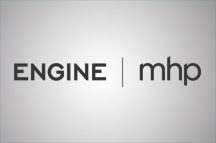The decisive General Election result was unexpected and its implications will be far-reaching. Health, and particularly the pharmaceutical industry, is one of many areas in which this Parliament will be radically different in its approach to the last.
Across the House of Commons, established healthcare advocates have stepped down or lost their seats, to be replaced by a new generation of MPs, many of whom have interests or experience in the field and will be worth keeping an eye on.
The loss of expertise includes a number of high-profile champions of healthcare issues, including Dr Sarah Wollaston, the former Conservative Chair of the Health Committee, who was re-standing in Totnes as a Liberal Democrat. Nic Dakin, the Chair of the All Party Parliamentary Group on Cancer was another casualty, losing his Scunthorpe seat as the collapse of Labour’s ‘Red Wall’ became a defining characteristic of the election.
Additionally, a number of MPs across all parties chose to stand down ahead of the election, including social care champion and former Science and Technology Select Committee Chair Norman Lamb, and former pharmaceutical Government Affairs professional Owen Smith.

Over the coming weeks, elections for the Chairs of Select Committees will take place and their membership will be confirmed. This process is normally a prompt one: in 2017 the new Chairs were installed by 12 July – five weeks after polling day. In this period, All Party Parliamentary Groups will also begin to re-form with a new membership. It is also expected that Prime Minister Boris Johnson will announce a more extensive restructure of Whitehall and an associated reshuffle of his ministerial team following the UK’s departure from the European Union.
With the impasse over Brexit coming to an end, for the time being at least, there is an expectation that a broader focus on public policy will resume. Given the prominence of the NHS in the recent election campaign, alongside the impact of a free trade arrangement on the system, healthcare is set to remain the top domestic political issue.
The Government’s Commons majority makes legislation on healthcare more likely to be considered and passed. Unlike the Theresa May Minority Government, where legislative healthcare reform was delayed, December’s Queen’s Speech contained five bills within health and social care, with the most significant proposals proposed by NHS England still to come.
This also means that the individual contributions of parliamentarians are likely to be more significant and impactful, whereas in the past the centre of power lay between the Department and NHS England.
A number of incoming MPs are likely to shape the debate, drawing upon their relevant experience from healthcare practice, policy and campaigning.
In the downloadable briefing below, we have set out a number of people we believe will be of interest from the new intake, based on their previous experience:
by Gabriel Gavin













